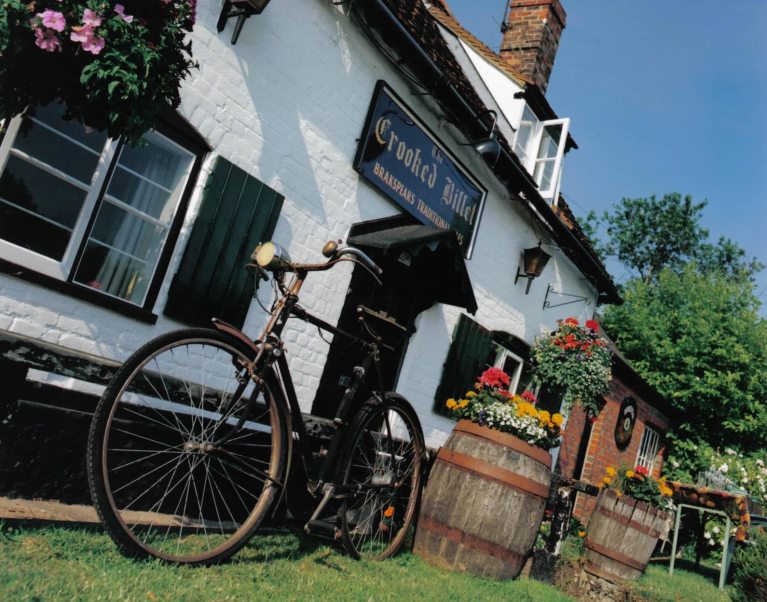30th July, 2025
When I am not writing travel blogs, I live in a university town in the north-west of England, with a population of 50,000 people on the doorstep of the Lake District national park. It has no fewer than 30 pubs. This pub to person ratio is typical of many settlements in the British Isles. Pubs come in all shapes and sizes. Some are not unlike sports bars, with punters gazing up at huge, wall mounted televisions, drinking cheap European lagers or expensive, micro-brewed IPAs. Others are very ‘local’, serving only a couple of streets, with plush carpets that smell like they remember a time before the 2006 smoking ban and, inexplicably, a mural of their darts league from 1998. But most British pubs are beautiful. Across the canal from my flat is the White Cross, set in a refurbished Victorian warehouse, with hearty food, traditional ales, and plenty of waterside seating. It has something for everyone; from my window, I can see a few people crowded around a small television, three generations of the same family enjoying fish and chips together, and students on nervous first dates.
Famous Pubs
Britain is full of pubs like the White Cross, that champion local produce, serve their community, and have a friendly and welcoming atmosphere. Some are better known than others. One of the most famous pubs on our tour routes is probably the Craven Arms in Appletreewick, on our Dales Way walking tour. The Craven Arms is the star of hit period drama All Creatures Great and Small, where the pub is the interior of the Drovers Arms in the fictional town of Darrowby.
Oldest Pubs
A few pubs claim to be the oldest in Britain. Near the resting place of Jane Austen in Winchester at the start of the South Downs Way is the Royal Oak, which traces its heritage back more than a thousand years, when it was the residence of Queen Emma, a powerful woman who served as regent between the death of her second husband, King Cnut, and the coronation of their son, Harthacnut. Porch House, in the beautiful Cotswold town of Stow-on-the-Wold, might be even older, with part of the building dating back to the tenth century. The Porch House is an Inn, which means it was (and is!) a resting place for weary travellers – even if they are only stopping in for a refreshing pint of ale, rather than a sleep. Interestingly, despite their prevalence in fantasy based on medieval Europe, you very rarely come across a pub that describes itself as a ‘tavern’.
Highest Pubs
Tan Hill Inn, between Keld and Reeth in rugged North Yorkshire, can’t claim to be the oldest pub (it only dates back to the 17th century), but it is the highest, lying 1,732 feet above sea level. The many hiking trails that surround the inn make it a great stopping-off point if you’re exploring the breathtaking Yorkshire Dales national park, and like many pubs in rural areas their food and drink offer a welcome respite after a long walk or cycle. Another mountain inn is the Drunken Duck in the Lake District village of Ambleside. Not only does the Drunken Duck offer stunning views: it has its own brewery! So, you can be sure you’re enjoying fresh, authentic, locally sourced ales when you stop there.
The fall and rise of the British pub
Sadly, not all is rosy for the British pub. 300 pubs closed in 2024 alone. An unbearable tax burden from local and central government is partly to blame, but so is changing consumer behaviour. Alcohol is expensive, and too much of a good thing is bad for your health. The British had a bit of a reputation around the turn of the millennium for overindulgence – but younger Brits don’t drink nearly as much as their older counterparts used to. It's not all doom and gloom! The BBC, aghast, reported that Gilsland (population: 400) was ‘left with just one pub’ after the Samson Inn closed in October 2022. But the tiny village near Hadrian’s Wall in England’s far north, clubbed together to buy their ‘local’. It is now run by the Gilsland Community Benefit Society Limited, with shareholders as far away as Australia! This is becoming an increasingly common model in Britain, and there are about 200 pubs nationwide that are owned and run by local groups. Any profits are reinvested in the community, and they often double as spaces for the area’s volunteer groups. Some even offer apprenticeships to young people, to help them gain managerial experience. Many pubs are now offering excellent cuisine and the 'gastro-pub' is offering another route to economic success.
Pubs bring their communities together, and it’s vitally important that they stay open. Wherever you visit in Britain, pop into one of our friendly, authentic pubs. Meet the locals, savour an ale (or an elderflower cordial) – you won’t regret it.
Posted by: Will Garbett
Tags: Cycling holidays, Eat + drink, Hidden gems, History, Insider info, Walking holidays

